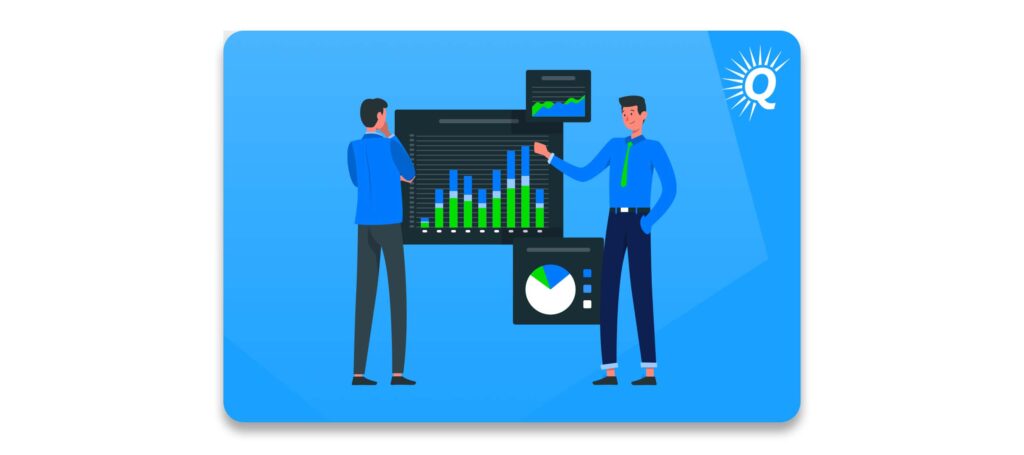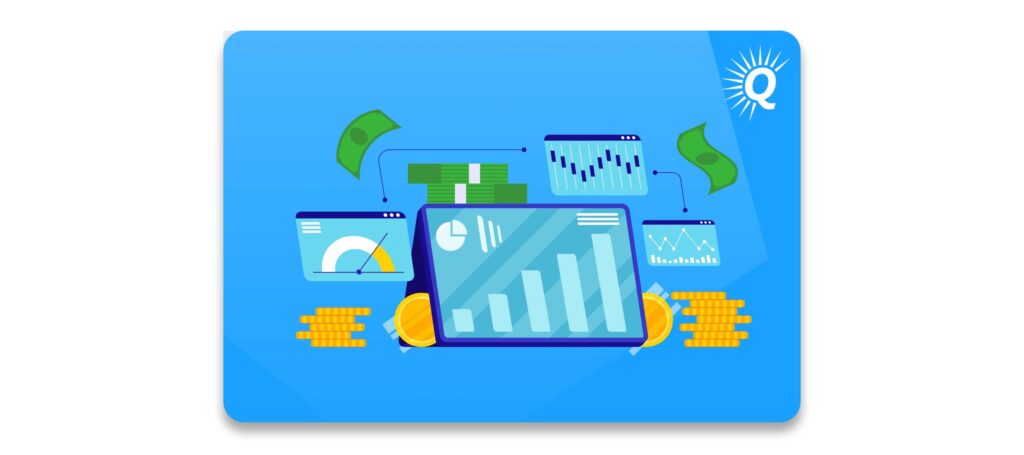Topics:
Never Miss a Beat - Get Updates Direct to Your Inbox
FILTER:


The Ultimate Guide on How to Sell Your Ecommerce Business
By Quiet Light
Much of the financial value you derive from your ecommerce business comes when you sell it. However, a successful exit is far from guaranteed. The way in which you navigate the process has a dramatic impact on the total value realized from the sale.
The first step along the path to success is gaining a comprehensive understanding of what it takes to sell your ecommerce business. By the end of this guide, you’ll have exactly that.
In this article, we discuss:
- Five things you should do to prepare to sell your ecommerce business
- How to maximize the value of your ecommerce business before going to market
- Where to sell an ecommerce business
- What to consider when determining when is the right time to sell an ecommerce business
- How long you should expect it to take to sell your ecommerce business
- Selling an ecommerce business by platform
- Common mistakes to avoid when selling your ecommerce business
- What the process of selling your ecommerce business with Quiet Light looks like
Related Articles:
How to Value an Ecommerce Business
How an Ecommerce Broker Can Help You Sell Your Business For Maximum Value


Five Key Steps to Maximize the Value of Your Ecommerce Business before Selling
The process of selling your business starts well before you put it on the market. Failing to adequately prepare for your exit can dramatically reduce your final sale price. In general, it is recommended that you give yourself a window of 12–24 months in order to have ample time to implement necessary improvements.
In this section, we take a look at what drives business value as well as what you can do ahead of time in order to create a more profitable and successful exit.
Understanding ecommerce business value
Ecommerce business value is typically calculated using the SDE multiple method. This valuation method states the following:
Business value = SDE x the multiple
SDE (seller’s discretionary earnings) is the income of the business before taking into account certain discretionary expenses. Since these discretionary expenses aren’t counted, SDE does a better job of assessing the true money-generating capacity of a given company. This makes it easier to compare two or more businesses to each other.
The multiple is a number that encapsulates the tangible and intangible factors that go into determining how valuable a business is. Two companies with identical SDE figures can have very different overall values. This difference is captured in the multiple.
Multiples vary based on a wide variety individual of factors. These factors can be grouped into four main categories known as the Four Pillars of Value. These include:
- Growth
- Risk
- Transferability
- Documentation
These four factors are key to understanding what you can do to optimize your business prior to selling. By planning ahead and implementing changes that address each of these factors, you can create a business that attracts more interested buyers, receives higher offers, and wins better deal terms.
“The multiple is a number that encapsulates the tangible and intangible factors that go into determining how valuable a business is.”
1. Get your financials in order
If you have not already done so, you will need to get your finances and financial statements in order before you sell your business. This will help you during the exit process in many ways.
For starters, clear financial statements are necessary in order to create an accurate valuation of your business. It is advisable to use accrual accounting when calculating business value. Accrual accounting provides greater detail and insight into the performance of your business, allowing you to better identify trends that may be important for valuing your company.
If you have been using cash accounting, it will take a significant amount of work to transfer to accrual accounting. Many entrepreneurs find it helpful to hire a professional accountant who specializes in working with ecommerce businesses in order to clean up their financials.
Clear financials will also signal to buyers that you run your company in a responsible manner, instilling confidence and helping you sell for a higher price.


2. Establish clear documentation practices
Clear financial statements are just one aspect of maintaining good documentation practices. While your financial statements create a narrative about your business and its performance, the story must be backed up with organized supporting documentation.
During the selling process, the buyer will want to verify your accounting records with third-party documents and information. This includes bank statements, records from Amazon Seller Central and your Shopify account (or whichever platform you use for your ecommerce business), supplier invoices, ecommerce website reports, and advertising reports.
You should have this information organized and ready to go. This will save valuable time during the selling process and further instill confidence in the buyer.
Another important aspect of proper documentation involves creating clear standard operating procedures (SOPs). SOPs act as an operating manual for your business. They spell out how to run all aspects of your company in detail and make it much easier for a new owner to successfully run your business as well as help create a smoother transition and training process. SOPs can make the difference between a difficult transition period and a transition period requiring much less work for you.
3. Make sure your business can be easily transferred to a new owner
Your ecommerce business is only valuable to a new owner if they can take over ownership without negatively impacting its performance. The ease and success with which a business can change hands is known as transferability.
Before you decide to list your business for sale, be sure to remove any barriers that would make it harder to transfer your company. Fortunately, most ecommerce businesses have few barriers, if any. This is especially true if your company is built on established ecommerce platforms like Amazon or Shopify.
If your business is tied closely to your image or personality, though, it could impact transferability. For example, if your main marketing channel is your own personal social media profiles, a new owner would find it hard to maintain operations without your involvement.
In this situation, you would want to leave ample time to gradually remove your personality from your business by focusing on other marketing channels or building up business-specific social media accounts.


4. Focus on high-growth opportunities
All other things being equal, an ecommerce business that exhibits strong growth will be more attractive to potential buyers than one that is stagnant or declining. For this reason, be sure to focus on high-growth opportunities in the 12–24 months leading up to selling your business.
Common high-growth opportunities include:
- Expanding to new markets
- Partnering with affiliates
- Implementing or improving email marketing
- Increasing your advertising spend
- Launching more products
Of course, the right growth strategy for you will depend on the needs of your business. Take some time to assess where your business is and identify areas that are ripe for growth. Then, create a plan and implement it faithfully.
5. Minimize risks in your business
Any competent business owner understands that running a company involves risk. However, the more risk your business entails, the less valuable it will be to prospective buyers. You can work to increase the value of your business by examining your operations and taking steps to minimize or eliminate areas of risk.
Any part of your business’s success that depends on a single point of failure entails more risk. If you only have one successful product, for example, your business will suffer if that product suddenly declines. You can address this issue by launching additional products in many different product categories.
The same holds true for your marketing efforts or product sourcing. If you solely rely on Facebook ads, you may want to consider additional marketing channels. Likewise, if you source your inventory from one manufacturer, you would be in deep trouble if that manufacturer suddenly went out of business.
Lastly, take some time to make sure that your intellectual property, trademarks, and patents are properly registered and secure. This helps your business avoid legal issues down the road that could negatively impact performance.
“Many entrepreneurs find it helpful to hire a professional accountant who specializes in working with ecommerce businesses in order to clean up their financials.”


How to Maximize the Value of Your Ecommerce Business
While each sale is unique, every exit follows similar steps. Below, we take a quick look at each part of the selling process.
Engagement letter
The engagement letter is a written agreement between you and your Quiet Light business Advisor that spells out the terms of your working relationship.
Client interview
Next, your Advisor interviews you to learn more about your business. During the interview, they will ask you a variety of questions that buyers are likely to ask in order to gather important information and help you prepare for the sale.
Marketing package
Your Advisor will put together a marketing package containing key information about your business. This marketing package is used by interested buyers to learn about your company in order to gauge their interest in making an offer.
Public listing
After your marketing package is complete, your Advisor will create your public for-sale listing and send out an email blast to their pool of qualified buyers.
Negotiate with potential buyers
As potential buyers express their interest, you and your Advisor will answer their questions and evaluate offers, make counteroffers, and negotiate terms.


Letter of intent
Once you accept an offer from a buyer, you and the buyer will sign a letter of intent. While this is not a legally binding document, it is a crucial step in achieving a successful sale.
Due diligence
During due diligence, the buyer and their team comb through your business records to verify that all information presented to them is accurate and factual. Due diligence can be a lengthy and stressful process. You can help the situation by being organized, answering questions in a timely manner, and consistently working to move the process forward.
Asset purchase agreement
Once the buyer is satisfied with due diligence, you and the buyer work together to draft and sign the asset purchase agreement. This is the final, legally binding document that spells out the details of the sale.
Closing and transition
Lastly, all assets are transferred from you to the buyer, closing out the deal. Most transactions also include a post-sale period of training. During this process, you will train the buyer how to successfully run the business on their own.
“During due diligence, the buyer and their team comb through your business records to verify that all information presented to them is accurate and factual.”
Get a free, individually-tailored valuation and business-readiness assessment. Sell when you're ready. Not a minute before.Thinking of Selling Your Business?
Where to Sell Your Ecommerce Business
Many business owners wonder where to sell their ecommerce business. There are two general paths you can take when going to market: sell directly to a buyer or work with a broker.
Selling your business directly to a buyer
Some owners consider selling their business directly to a potential buyer without the help of a broker. If you choose to go this route, you’ll likely need to list your business on an online marketplace. Once you start getting inquiries, you must then screen potential buyers, negotiate, complete due diligence, and close the deal. Unless you’ve already been through the process several times, it can feel a bit overwhelming. Needless to say, there’s a lot at stake when selling your online store.
As a business owner, you are used to figuring things out on your own and making it work. Selling your business yourself can be a smart move if it’s a relatively small brand (e.g., less than $100K in value). However, for larger businesses with a higher cash-flow cycle, there’s significantly more at stake. This makes it extremely valuable to have support and guidance throughout the process (more on this below).
For Amazon businesses, it’s not uncommon for an FBA roll-up company (aka an aggregator) to reach out to sellers directly. When this happens, they’ll generally request that you not work with a broker or list your business for sale publicly. While it can certainly be tempting to sell your ecommerce business to the first interested party, sellers should be very wary about pursuing such deals. You wouldn’t sell your home to the first person who comes knocking on your door, so why would you sell your business that way?


Selling to an aggregator
Selling your FBA business to an aggregator can be a great choice. If other buyers don’t have the opportunity to make offers, though, you’ll likely receive less value and less favorable deal terms at closing.
Before signing a purchase agreement with an aggregator, it’s best to publicly list your business for sale. Doing so allows other potential buyers to make offers, thereby putting upward pressure on the purchase price. You can still sell your ecommerce business to an aggregator if you’d like, but at least they’ll be forced to pay fair market value.
Working with a broker
Some moves are too important to leave to chance. Selling your business may be such an endeavor. As such, many entrepreneurs choose to work with an experienced broker who specializes in online business exits. While this route requires you to pay a success fee at closing, the added value and confidence they provide more than compensate for the fee you pay.
Typically, a skilled broker can help you receive more offers, a higher purchase price, and more favorable deal terms. Not to mention, they’re able to provide support and guidance through the many complexities that accompany the selling process. Some of the core activities they help with include:
- Providing a fair and accurate valuation
- Offering guidance on how to increase your business’s value
- Creating a marketing package
- Providing access to a large network of qualified buyers
- Screening potential buyers to help you avoid “tire kickers”
- Negotiating and structuring the deal
- Facilitating due diligence and closing
“A skilled broker can help you receive more offers, a higher purchase price, and more favorable deal terms.”
Understanding the Best Time to Sell an Ecommerce Business
There are several things to think about when it comes to deciding on the right time to sell your ecommerce business. These include:
- Business growth trends
- Market trends
- Seasonality factors
- Outside opportunities
- Your personal financial situation
- How prepared your business is to sell
There is often not one single right time to sell your business. However, you can maximize the value of your exit by taking ample time to prepare your company for sale and paying attention to the growth trends of your business, seasonal trends, and overall market trends. In addition, your personal financial needs and outside business or life opportunities will have an impact on your ideal timing.
To learn more about choosing the best time to sell your business, check out this article from our archives.


How Long You Should Expect It Take to Sell Your Ecommerce Business
There is no set timeline when it comes to selling your ecommerce business. Times vary depending on a number of factors, including how prepared you are, how quickly you can find a qualified buyer, and how the transaction process develops between you and the buyer.
As mentioned, it is best to plan for 12–24 months to adequately prepare your business for sale. Once your business is ready for market, it can take anywhere from 14 to 150 days or more to close the sale. However, 90 days is a good rule of thumb.
To learn more about how long it takes to sell an ecommerce business, including factors that can impact the timeline, check out our previous article on the subject.
“Once your business is ready for market, it can take anywhere from 14 to 150 days or more to close the sale. However, 90 days is a good rule of thumb.”
Selling an Ecommerce Business by Platform
There are a number of ecommerce business platforms available. Below, we briefly discuss ten of the most popular ecommerce platforms available.
Sell my Shopify store
Shopify is the number one ecommerce platform for all businesses. Boasting easily customizable templates, all-in-one solutions, and millions of users, successful Shopify stores are an attractive acquisition target for individuals, aggregator firms, or other companies.
Sell my Wix store
Wix is an easy-to-use website builder that also offers powerful ecommerce business solutions. While Wix was a bit slow to the ecommerce market, they have come a long way in creating an effective and beautiful ecommerce solution. Successful Wix-based businesses can expect large demand when they decide to sell.


Sell my Squarespace store
Squarespace is a top-rated ecommerce platform. Some of its strengths include charging no transaction fees and providing award-winning website templates. Squarespace’s recognizable brand name can also be a boon when it comes to selling your ecommerce business.
Sell my WooCommerce store
WooCommerce allows you to transform a WordPress website into an ecommerce store. As such, it is wonderful for SEO and content-driven businesses. This can be an advantage for the right buyer.
Sell my BigCommerce store
BigCommerce stands out by offering lots of built-in sales and marketing tools, lots of features, and no transaction fees, among others. Its more-advanced options can be costlier than other platforms, however.
Sell my Adobe Commerce store
Formerly Magento, Adobe Commerce utilizes artificial intelligence to offer its users a personalized experience. It also provides you with detailed shopper analysis in order to gain greater insight into your customer base. Adobe Commerce is a great option for larger businesses or enterprise operations.
Sell my Square Online store
Square provides users with both an ecommerce platform and the ability to bill people in person. It also offers multichannel solutions, allowing you to sell across multiple platforms, including Facebook, Instagram, and your ecommerce site.
Sell my Shift4Shop store
Shift4Shop provides a robust free plan as well as helpful fraud protection. Among the downsides are its limited customizability compared to other platforms and its annual sales cap. Thus, it may not be a great choice for businesses that seek to grow.
Sell my Weebly store
Weebly is affordable and very easy to use, making it a great option for those just getting started with ecommerce. It also offers unlimited storage, providing you with the infrastructure needed to expand and grow your business.
Sell my Big Cartel store
Big Cartel is geared toward online sellers in creative fields, although it can be used across industries. Like Weebly, it is an affordable option, making it a great choice for new businesses. In addition, it allows you to sell in person, from your online store, or from your business’s Facebook profile.


Avoid These Common Mistakes When Selling an Ecommerce Business
Selling a business successfully requires navigating a complex and challenging process. Below, we discuss five common mistakes to avoid when selling your business.
- Not having a strategy
- Not leaving plenty of time to prepare your business
- Poor communication with the buyer
- Choosing the wrong buyer
- Forgoing professional help
Create a cohesive exit strategy
A successful exit requires careful planning. Long before you wish to sell, be sure to take stock of where your business is in order to create a cohesive exit strategy. Your strategy will serve as your guide throughout the preparation and sale of your business.
Leave yourself ample time to prepare your business for sale
In addition, be sure to leave yourself ample time to implement changes to your business prior to listing it. As discussed previously, it is wise to start your preparations 12–24 months before you plan to sell.
Communicate effectively with the buyer
Communication is key throughout the selling process. From negotiating offers to navigating due diligence and drafting and closing the asset purchase agreement, clear communication will go a long way in helping to ensure a smooth transaction. Be up front, honest, timely, and transparent in your communication.


Choose the right buyer for your business
Many sellers make the mistake of choosing the first offer that comes in. Take your time and be discerning when deciding on a buyer. Of course, pay attention to the dollar amount of each offer, but also be sure to consider the financing and deal terms as well as the buyer’s character. Choosing a competent, honest, and professional buyer can go a long way toward creating a successful exit.
Don’t be afraid to seek professional advice
Many sellers try to sell their business on their own without the help of an Advisor. This may be a worthwhile option for some, especially those with smaller businesses. But as we will see in the next section, most entrepreneurs benefit from working with a qualified business Advisor.
“Be up front, honest, timely, and transparent in your communication.”
Selling Your Ecommerce Business with Quiet Light
From beginning to end, an experienced business Advisor plays an indispensable role in achieving a successful exit. Your Advisor will help you value and prepare your business, create your listing, evaluate offers, negotiate deal terms, navigate due diligence, and close the deal.
Your Advisor should have experience selling similar businesses, keep your best interests at heart, and consistently work to help you achieve your goals. Ultimately, they should more than make up for their fee by helping you achieve a higher sales price and win better deal terms.
At Quiet Light, we are dedicated to providing trustworthy, competent, and knowledgeable service. We have been consistently growing our database of qualified buyers since 2007, helping your business gain valuable exposure in order to attract more offers and drive competition. In fact, about 75 percent of our closings involve buyers from our database.
Reach out to speak with a Quiet Light business Advisor today to learn more or discuss your exit options.
Outsmart the startup game and check out our listings. You can request a summary on any business without any further obligation.Buy a Profitable Online Business





